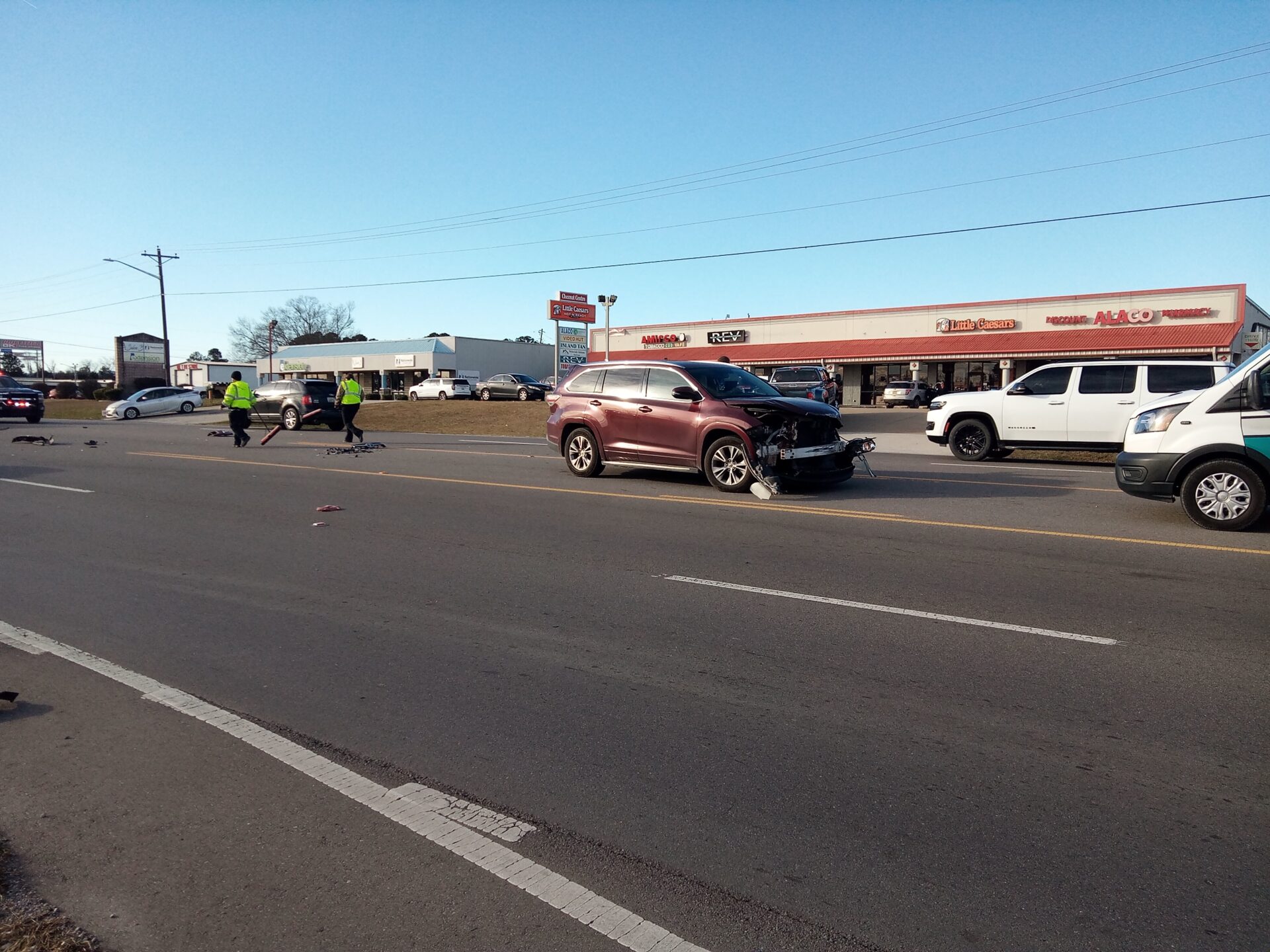
(LVIV, Ukraine) — Col. Oleh Avtomeenko was wounded while performing a combat mission in Donetsk region, on the first days of the Russian full-scale invasion in late February 2022, and lost his eyesight.
And now, after 20 years in Ukrainian Army, he has to say goodbye to it and learn how to move on in complete darkness. But he refused to surrender.
“When you are a military, you understand why that happened to you — because you connected your work, your profession with a certain risk for your life and health — it was your conscious choice of yours,” said Avtomeenko, 46.
The former deputy commander of a mechanized brigade said he feels sorry for civilians who have nothing to do with army, but who have also lost their eyesight during the Russian war against Ukraine.
“First six months I was completely devastated, it couldn’t be any worse, thinking that life is over, my military career is over, all my plans for the future are ruined and I have lost everything,” Avtomeenko said.
The next six months were a period of acceptance for him, as he realized what happened to him and there was nothing that could be done to change it.
No wonder that Avtomeenko became one of the five first students of “Touch Point,” a project initiated by Ukrainian Ministry of Education, the NGO Public Health Alliance and the Lviv Educational and Rehabilitation Center “Levenya.”
During two weeks of its first phase this March, four veterans and one civilian woman learned how to navigate in space without eyesight, including cooking and working with computers and smartphones. Avtomeenko traveled to Lviv to participate.
“The state did not manage to build a solid, flexible and organized system in order to help people who have sacrificed their health during this war,” explained Vira Remazhevska, the co-organizer of the courses and the founder of the first in Ukraine educational and rehabilitation center, “Levenya.”
The president of the nongovernmental group Association of Special and Inclusive Education Workers insists that from the very beginning of the war, when Russian forces entered Crimea in 2014, this problem has unfortunately become a matter of concern mostly for NGOs.
“One of our goals was not only to help particular people but also to try to shape and formulate such kind of social service in the country,” said Remazhevska.
Long before the project started, Remazhevska and her team were helping the veterans, consulting with them at first via the phone, providing them with psychological support. They taught them how to deal with basic needs, for instance, how to brush their teeth by putting the toothpaste not on the toothbrush but directly on the teeth.
This March, on the premises of the local professional college of hotel, tourist and restaurant service in Lviv, the participants of the project learned not only how to use laptop, cellphone and other digital gadgets, but also how to cook and how to walk using the white cane.
“It is supposed to become the extension of their hand and actual substitute of their vision – indoors and outdoors,” Remazhevska said.
In her opinion, “A spatial orientation instructor who teaches a person to walk is responsible for his life, because he must teach him first of all safety.”
After the first stage of the project, Remazhevska noticed that people who have lost their eyesight as a result of injury often suffer from severe concussions.
According to her, the rehabilitators are also dealing with massive psychological problems not only of the veterans but also of their families’ members: “This is a tragedy of a whole family, a tragedy of relationships, when a person who was the support, the backbone of the family, suddenly becomes a helpless person.”
“I am a living proof that one can live despite blindness — I think that is the best example we can provide in order to push people for further development,” says Volodymyr Pyrig, 35, a journalist and blind trainer at the program.
Pyrig, who has been blind since birth, has for years has been serving as a translator of many programs for the blind into Ukrainian, in particular – a program that allows blind people to work freely with a computer.
During the 10 days Pyrig worked with three veterans.
“At first, the guys just needed more communication with other blind people – they asked me a lot of questions not related directly to the training,” Pyrig said.
“On the one hand, they already knew how to clean the apartment and do other stuff at home, but, on the other hand, they were not ready to go shopping or to cook. I shared with them some basic knowledge to let them use and multiply it.”
According to Pyrig, Avtomeenko managed to be very quick in terms of orientation, learning how to work independently and now he works on the computer with relative confidence –from time-to-time reaching out to Pyrig with some additional questions.
Another veteran, Anton Bohach, a volunteer and former truck driver from Kropyvnytskyi, learned how to use a smartphone but said he was not ready to deal with the computer, explaining that he doesn’t feel a proper push to start working in this direction.
“Maybe, it is a matter of some psychological implications, as he has lost his vision only in September last year — roughly speaking, not enough time passed since then at the moment,” Pyrig said. Due to his observations, Those who lost their sight earlier in life often behaved more confidently, were more relaxed, more open, he said.
The third veteran, Denys Abdulin, also a volunteer and former boxer from Bila Tserkva, already knows what he wants to do. as He said he plans to become a professional masseur.
In Pyrig’s opinion, the Ukrainian society is reacting better to the needs of the blind people but there is still some discrimination left — especially in terms of labor.
“In the majority of cases there is a prejudice that if you are blind, it automatically means that you are not going to make it, you are incapable of doing some job,” he said. “There is even no chance to try through the internship – in order take your chance to prove that you actually can.”
The training made a difference for Avtomeenko, who said, “It was great – after the first two or three days I understood that with this (blindness) you can live and live coolly setting no limits for yourself.”
The common day for Avtomeenko starts with workout, shower, shaving, coffee and feeding the cats. And then he normally spends the rest of his time on his laptop working with his channel on Telegram.
“At first, I planned to work on the blog about the life with blindness, common questions and problems to resolve, how to live in the city and use some social establishments for physically impaired people,” Avtomeenko said.
Then he added some military analytics and other news from Ukraine, but after complete mastering the laptop he plans to dedicate his work to other blind people: “To tell them more about technologies, gadgets and applications that can simplify or comfort their lives.”
He is sharing his videos through his video blog, TikTok, Instagram and YouTube — letting people know what the life of a blind person looks like: “I work mostly on the laptop, listen to some content on YouTube, and learn English or Polish languages through the audio lessons as I need to develop myself – there is no point in being stuck in the moment.”
Avtomeenko says his own motto is his personal message to other veterans who have lost their eyesight or limbs: “Do not stop. I know, that this is hard. I have been there myself. Nothing is impossible – if someone else made it, you can make it as well and if no one made it – you can be the first one to do that.”
By the end of these two weeks of rehabilitation, Avtomeenko said, he became more self-sufficient, more autonomous, learned how to walk, how to do many other things.
He remembers, that some of the veterans were saying that it would be better if they had lost the leg instead of their eyes being damaged: “It makes no sense to compare someone’s else story with your own or try to understand how it is to be in other’s shoes – everybody is living their unique story, you just have to overcome it and accept it as it is.”
Remazhevska said that not all young men who have lost their eyesight are willing to participate as there are several factors — previously gained negative experience of rehabilitation in medical facilities, loss of self-confidence and loss of trust to the state.
“Some are just doing nothing, staying at their homes making no efforts, and some are just too tired to search the truth,” she said.
But Remazhevska insisted that even two weeks can make a difference for some severely wounded veterans and civilians as they may gain a lot. She cited Lyudmyla, a woman from Vyshgorod and the only civilian participant of the course, saying, “I have spent 18 months in darkness, in the dark pit, and these two weeks became the brightest period in my life.”
Copyright © 2024, ABC Audio. All rights reserved.




